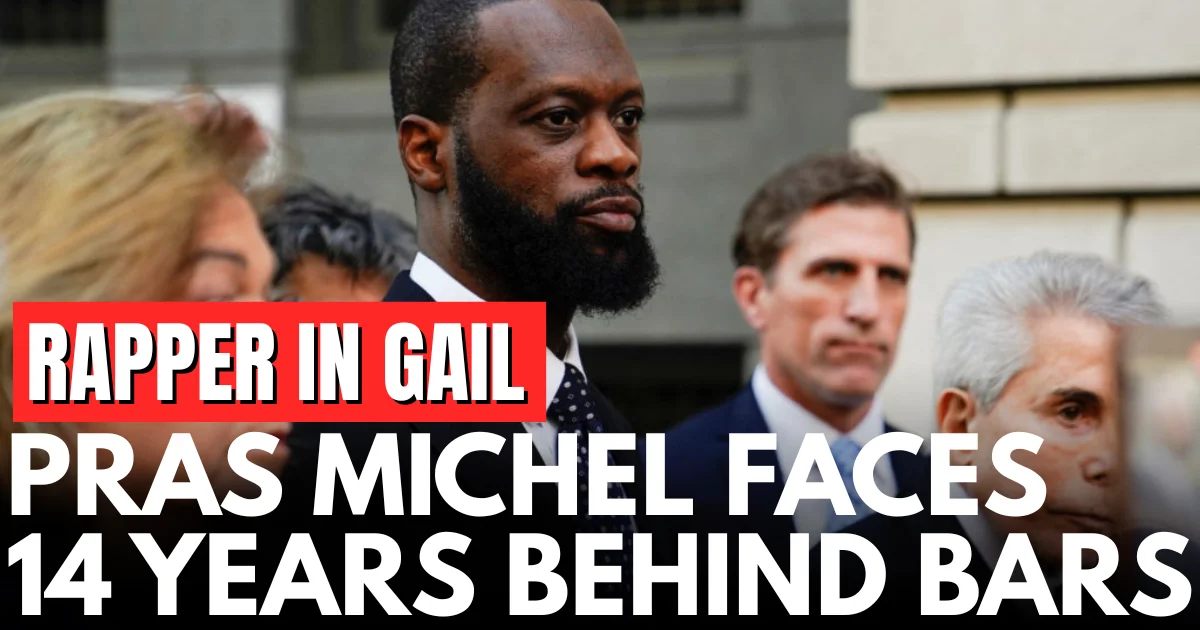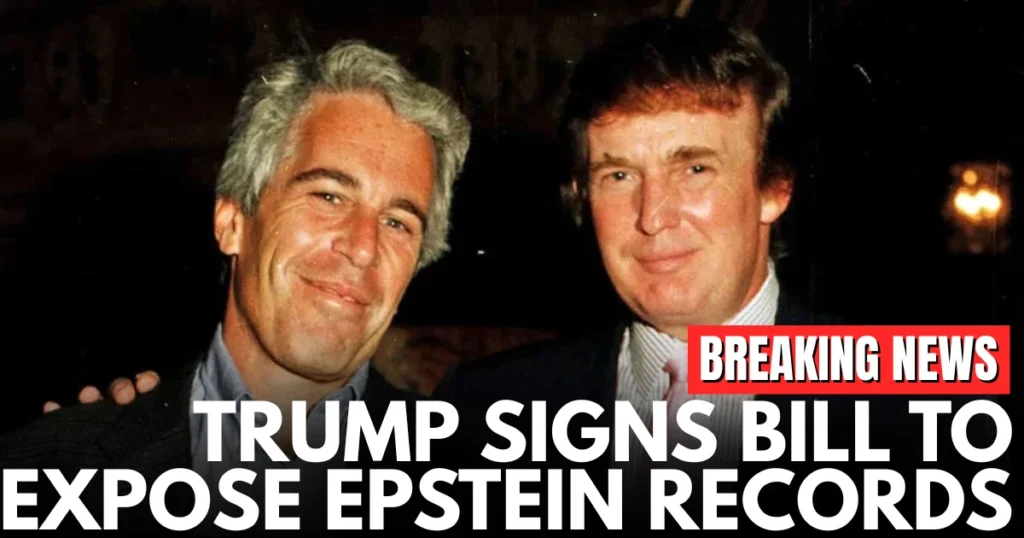Pras Michel of Fugees receives 14-year prison sentence for illegal lobbying and campaign finance violations. Legal case details and implications explained.
Table of Contents
Fugees Rapper Pras Michel Sentenced to 14 Years in Federal Prison for Illegal Lobbying Scheme
Prakazrel “Pras” Michel, founding member of the influential hip-hop group Fugees, received a 14-year federal prison sentence following his conviction on charges related to an illegal foreign lobbying operation. The case centered on allegations that Michel participated in a scheme funneling foreign money into U.S. political campaigns and lobbying efforts.
The sentencing concludes a high-profile legal saga highlighting the intersection of entertainment, politics, and foreign influence in American democracy. Federal prosecutors characterized the case as representing serious threats to political system integrity when foreign interests seek to buy influence through illegal channels.
Understanding the Criminal Charges
Federal prosecutors charged Michel with multiple counts related to an elaborate scheme involving foreign nationals, political campaigns, and unregistered lobbying activities.
Primary charges and convictions:
Campaign finance violations involving illegal foreign contributions to U.S. political campaigns. Federal law prohibits foreign nationals from contributing to American elections directly or through intermediaries.
Conspiracy to defraud the United States by obstructing government functions. Prosecutors alleged Michel helped conceal the foreign origins of political contributions through various mechanisms.
Acting as an unregistered foreign agent while lobbying U.S. officials on behalf of foreign interests. The Foreign Agents Registration Act requires disclosure when individuals lobby for foreign governments or entities.
Witness tampering charges stemmed from alleged attempts to influence testimony during investigation. Obstruction of justice represents serious federal offense carrying substantial penalties.
Money laundering allegations involved moving funds through accounts to disguise their origins. Financial crimes enable other illegal activities by concealing money trails.
Legal proceedings timeline:
The investigation spanned several years as federal authorities traced complex financial transactions and political connections. Multi-year investigations characterize sophisticated white-collar crime prosecutions.
Trial proceedings lasted weeks with prosecutors presenting extensive documentary evidence and witness testimony. The government built its case through financial records, communications, and cooperating witnesses.
Jury deliberations resulted in guilty verdicts on most charges. The conviction required unanimous jury agreement that evidence proved guilt beyond reasonable doubt.
The Illegal Lobbying Scheme Details
Prosecutors alleged that Michel facilitated a foreign national’s attempts to influence U.S. politics through illegal campaign contributions and lobbying.
Scheme mechanics:
A foreign national allegedly provided Michel with millions of dollars to donate to political campaigns. Michel then funneled money to campaigns through various intermediaries disguising the foreign origins.
The scheme reportedly involved both major political parties with contributions flowing to candidates across the political spectrum. Prosecutors emphasized that foreign influence efforts transcend partisan politics.
Lobbying activities included efforts to influence U.S. government positions on foreign policy matters. Michel allegedly worked to shape American responses to investigations and diplomatic issues.
High-level political access resulted from the contributions enabling meetings and communications with senior officials. Campaign donations often create access opportunities that pure lobbying cannot achieve.
Foreign connections:
The foreign national at the scheme’s center faced separate legal proceedings. International dimensions complicate prosecutions requiring cooperation across jurisdictions.
Alleged motivations included influencing U.S. foreign policy positions and halting certain government investigations. Foreign governments and individuals use various methods attempting to shape American policy.
Sentencing Considerations and Legal Arguments
The 14-year sentence reflected judicial consideration of multiple factors including crime severity, defendant conduct, and sentencing guidelines.
Prosecution sentencing arguments:
Federal prosecutors requested substantial prison time arguing that the crimes struck at democratic process integrity. They characterized Michel’s actions as selling American political system access to foreign interests.
The scheme’s sophistication and financial magnitude warranted serious consequences according to government attorneys. Multi-million dollar operations require proportionate responses.
Lack of remorse and attempts to obstruct justice aggravated the offenses. Defendants who take responsibility typically receive more lenient treatment than those denying wrongdoing.
Defense mitigation arguments:
Michel’s legal team argued for leniency based on his artistic contributions and charitable work. Defense attorneys typically present positive character evidence during sentencing.
They contended that Michel’s role was less central than prosecutors claimed. Defendants often argue they were peripheral participants rather than scheme leaders.
Arguments about disparate treatment compared to similarly situated defendants raised fairness questions. Sentencing consistency across cases represents important justice principle.
Impact on Fugees Legacy and Hip-Hop Culture
Michel’s legal troubles and conviction affect perceptions of the Fugees’ cultural contributions and legacy.
Fugees musical significance:
The group achieved massive success in the 1990s with critically acclaimed albums including “The Score.” Their fusion of hip-hop, reggae, and soul influenced multiple music genres.
Individual members including Lauryn Hill and Wyclef Jean achieved solo success following the group’s dissolution. The Fugees represented important moment in hip-hop’s artistic evolution.
Cultural impact extended beyond music into fashion, social commentary, and artistic expression. The group’s work addressed political and social issues through creative lens.
Separation of art from artist:
Michel’s legal problems create tension between appreciating artistic achievements and acknowledging criminal conduct. This dilemma affects many artists whose personal actions contradict their creative contributions.
Fans and cultural critics debate whether criminal convictions should diminish artistic legacy appreciation. Complex discussions involve separating creative work from creator misconduct.
Broader Implications for Foreign Influence
The case highlights ongoing concerns about foreign attempts to influence American politics through illegal means.
Foreign lobbying regulations:
The Foreign Agents Registration Act (FARA) requires individuals lobbying for foreign interests to register and disclose activities. Enhanced enforcement follows concerns about insufficient compliance.
Campaign finance laws prohibit foreign contributions protecting American elections from outside influence. These restrictions reflect fundamental principles about democratic self-governance.
Enforcement challenges persist as sophisticated actors develop methods to circumvent regulations. Legal authorities continuously adapt to evolving influence tactics.
Recent prosecution trends:
Federal authorities increasingly prioritize foreign influence prosecutions reflecting heightened national security concerns. Political system integrity receives elevated attention in enforcement priorities.
High-profile cases send deterrent messages about consequences for violating foreign lobbying and campaign finance laws. Visible prosecutions aim to discourage similar conduct.
Celebrity and White-Collar Crime Context
Michel’s case exemplifies how celebrities face federal prosecution when alleged conduct violates serious criminal laws.
Celebrity legal accountability:
Famous defendants sometimes receive public attention disproportionate to underlying offenses. Media coverage intensity creates unique pressures for all parties involved.
However, celebrity status doesn’t provide immunity from prosecution or conviction. Legal system treats high-profile defendants under same rules as others facing similar charges.
Sentencing outcomes vary based on specific case facts rather than defendant fame. Judges apply sentencing guidelines considering offense characteristics and defendant history.
White-collar crime prosecution:
Financial and political crimes often involve complex paper trails requiring extensive investigation. These prosecutions demand specialized expertise and resources.
Conviction rates in federal white-collar cases generally exceed those in other criminal categories. Extensive investigation before charging contributes to high success rates.
Sentences for fraud, corruption, and related offenses can rival or exceed violent crime penalties. Federal sentencing reflects serious view of economic and political system integrity crimes.
Legal Appeals and Next Steps
Michel’s legal team indicated intentions to appeal the conviction and sentence through available appellate processes.
Grounds for potential appeals:
Defense attorneys might challenge evidentiary rulings, jury instructions, or other trial court decisions. Appellate review examines whether legal errors affected trial outcomes.
Constitutional arguments about foreign lobbying law applications could form appeal bases. Defense teams explore all available legal theories when challenging convictions.
Sentencing appeals might argue that 14 years exceeds appropriate punishment for the specific conduct. Appellate courts review sentences for reasonableness under applicable guidelines.
Appeals process timeline:
Federal appeals typically take months or years to resolve depending on case complexity and court schedules. Defendants often remain incarcerated during appeals unless granted bail.
Appellate courts review trial records rather than hearing new evidence. They assess whether legal errors warrant reversal or sentence modification.
Campaign Finance Law Educational Context
The case illustrates important legal principles about political contribution regulations and foreign influence restrictions.
Why these laws exist:
Campaign finance regulations aim to prevent corruption or its appearance in political systems. Contribution limits and disclosure requirements promote transparency.
Foreign contribution bans protect American democratic self-governance from outside interference. Allowing foreign money in elections raises sovereignty and independence concerns.
Registration requirements for foreign agents enable public awareness about lobbying activities’ origins. Disclosure lets citizens evaluate influence attempts with full information.
Compliance requirements:
Individuals and entities engaging with political campaigns must understand contribution source restrictions. Violations can result from ignorance though criminal prosecution typically requires knowing conduct.
Those lobbying for foreign interests must register properly and disclose activities. FARA compliance involves specific filing and reporting obligations.
FAQ SECTION
1. What crimes was Pras Michel convicted of?
Pras Michel was convicted on multiple federal charges including campaign finance violations involving illegal foreign contributions to U.S. political campaigns, conspiracy to defraud the United States, acting as an unregistered foreign agent while lobbying officials, witness tampering, and money laundering. The charges centered on allegations that Michel participated in a scheme funneling foreign money into American political campaigns and lobbying efforts while concealing the foreign origins of contributions.
2. Why is foreign money in U.S. elections illegal?
Federal law prohibits foreign nationals from contributing to American elections directly or through intermediaries to protect democratic self-governance from outside interference. These restrictions reflect fundamental principles that American elections should be decided by American citizens without foreign influence attempting to buy political outcomes. Campaign finance laws aim to prevent corruption and maintain political system integrity by ensuring only domestic sources fund U.S. campaigns.
3. How long will Pras Michel serve in prison?
Pras Michel received a 14-year federal prison sentence following his conviction. Federal prisoners typically must serve at least 85% of sentences under truth-in-sentencing laws, meaning he would serve approximately 12 years minimum before potential release. However, appeals could affect the sentence if appellate courts find legal errors warranting reversal or modification. Defendants can appeal convictions and sentences through federal appellate court systems.
4. Can he appeal the conviction and sentence?
Yes, Michel’s legal team indicated intentions to appeal through available federal appellate processes. Appeals might challenge evidentiary rulings, jury instructions, constitutional arguments about law applications, or sentencing appropriateness. Federal appeals typically take months or years to resolve, and defendants often remain incarcerated during appeals unless granted bail. Appellate courts review trial records for legal errors rather than re-hearing evidence.
5. Does this affect the Fugees’ musical legacy?
Michel’s legal troubles create tension between appreciating the Fugees’ significant artistic contributions and acknowledging criminal conduct by one member. The group achieved massive 1990s success with influential albums that shaped hip-hop evolution. Fans and cultural critics debate whether individual members’ criminal convictions should diminish appreciation of collective artistic achievements, reflecting broader discussions about separating creative work from creator misconduct.
CONCLUSION
The 14-year prison sentence imposed on Fugees rapper Pras Michel concludes a significant federal prosecution highlighting serious concerns about foreign influence in American politics. The case demonstrates that campaign finance and foreign lobbying violations carry substantial legal consequences regardless of defendants’ celebrity status or artistic achievements.
For the justice system, this prosecution represents important enforcement of laws protecting democratic processes from foreign interference and illegal influence-buying. The substantial sentence sends clear messages about treating political system integrity violations seriously.
Michel’s conviction and sentencing illustrate the complex intersection of entertainment, politics, and law. While his musical contributions with the Fugees remain culturally significant, his criminal conduct resulted in serious legal accountability under federal laws designed to protect American democracy.
As appeals processes unfold, the case will continue generating attention while serving as cautionary example about the legal risks of participating in illegal lobbying and campaign finance schemes.
This article provides informational coverage of legal proceedings and does not constitute legal advice or judgment about guilt or innocence beyond court determinations.

